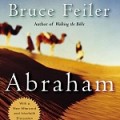Chapter Excerpt Introduction Home They start walking just after dawn. They stream through the streets, begin climbing the hills, and drop a few coins in the outstretched palms of the poor. They leave their houses, their lives, their neighbors, and come by themselves or in groups of two or three. Their heads are covered, their eyes downturned. They are alone. But when they pass through the gates and lift up their eyes, suddenly they are in an illuminated place, a familial place. They are home. No one is alone in Jerusalem: even the stones know your father.
Once inside, the stream divides. Christians turn north. Today is the last Friday before Christmas, and this afternoon monks will lead a somber procession carrying crosses down the Via Dolorosa. Jews turn south. Today is the last Friday of Hanukkah, and at sunset rabbis will hold a jubilant ceremony lighting six candies at the Western Wall. Muslims turn east. Today is the last Friday of Ramadan, and at noon clerics will hold a massive prayer service with two hundred thousand bending as one.
Today is not rare. Jerusalem is a touchstone of faith, and has been since before time began. The legends of monotheism are clear on one thing. Before there was time, there was water, and a darkness covered the deep. A piece of land emerged out of the water. That land is the Rock, and the rock is here. Adam was buried here. Solomon built here. Jesus prayed here. Muhammad ascended here.
And Abraham came here to sacrifice his son. Today that rock is a magnet of monotheism, an etched, worn mask of limestone, viewed by few alive today, touched by even fewer, hidden under a golden dome, and made more powerful by the incandescence that seems to surround it at every hour. The legends say God issued the first ray of light from the Rock. The ray pierced the darkness and filled his glorious land. The light in Jerusalem seems to fit that description perfectly. Washed by winter rains, as it is this morning, the air is the color of candlelight: pink, saffron, rose; turquoise, ruby, and bronze. It's a poignant irony that the light is all these colors, and yet the worshipers wear mostly white and black, as if they've yet to achieve the richness of the source. Which is why they come in the first place. The Rock is considered the navel of the world, and the world, it often seems, wants to crawl through that breach and reenter the womb of the Lord. As my archaeologist friend and traveling companion Avner Goren says while we hurry through the streets and climb to a perch overlooking the city, "To live in Jerusalem is to feet more alive, more yourself It's an honor, but it's a burden, too." Stand here, you can see eternity. Stand here, you can touch the source.
Stand here, you can smell burning flesh.
At midmorning an explosion sucks life out of the air. I turn to Avner. "A bomb? A sonic boom?" "It's not a plane," he says. Gunfire riddles the air. A siren wails. The steady gait of worshipers becomes a parade of nervous glances. Every accessory is a provocation: a talit, a kaffiyeh, a kippah, a cross. Every stone is a potential threat. Men with machine guns hover, with walkie-talkie plugs in their ears, cigarettes dangling. Avner stops to hug an Arab shopkeeper. "We are nervous today," Abdul says. "We are worried the Israeli police will provoke some young boy and fighting will erupt. Ramadan is always the worst."

